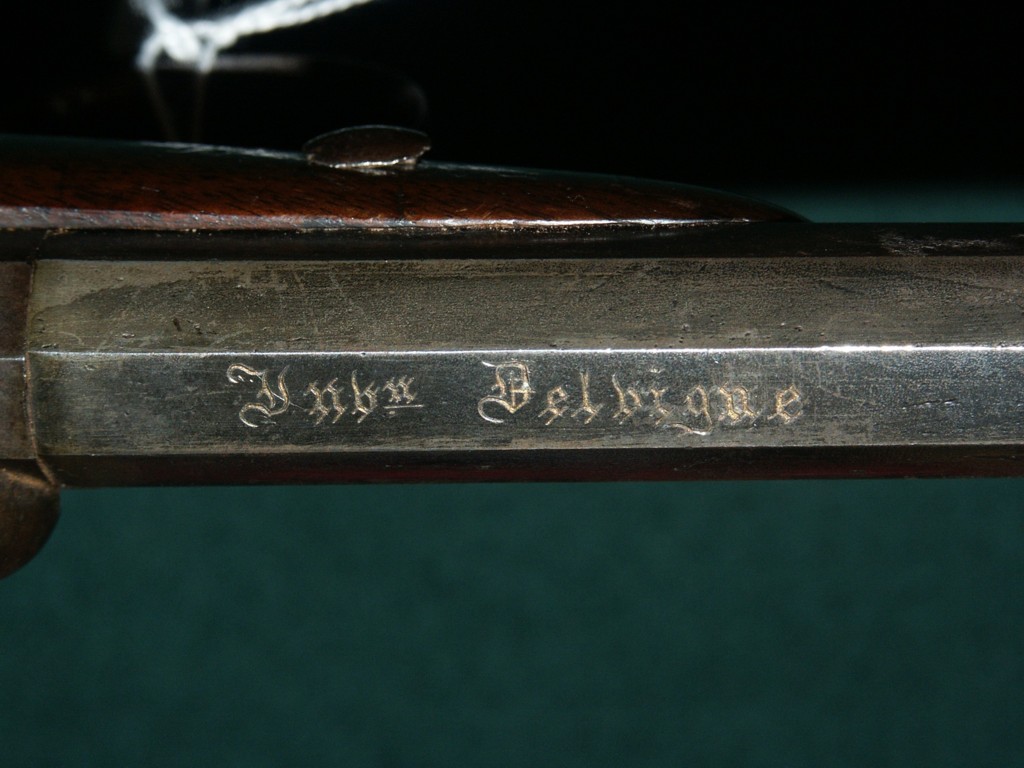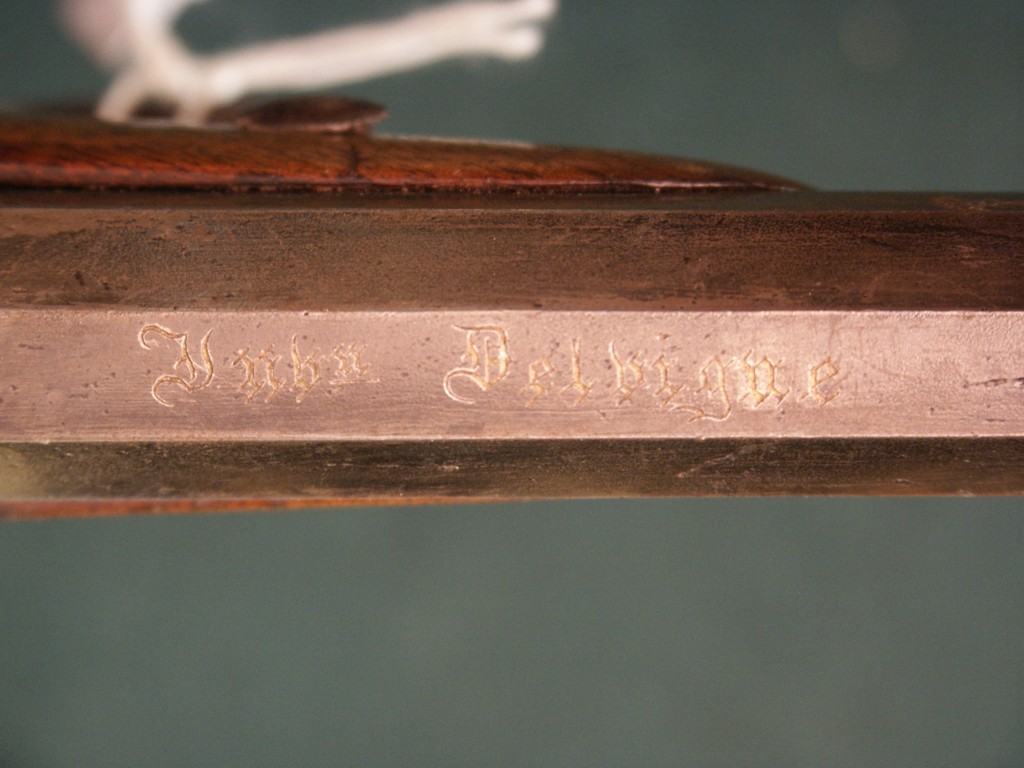Delvigne Henri Gustave
Here is a
pistol well marked Delvigne, with a large and strong loading rod screwed into
the handle and allowing the ball to sink. The particular shape of the butt
almost at right angles is obvious, as is the plate.
In an
article published in the Gazette des Armes in February 1998 (n° 285),
Jean-Jacques Buigné made very well the rounds of the question, with mention of
patent 12761 of June 1841, followed by patent 14665 of December 1842 which
concerns more the gun that concerns us.
"The
original plate is practically housed in the axis of the handle. It has a trigger
that acts in front of the nut, which allowed the inventor to advance the
trigger, shorten the frame and bring the center of gravity of the weapon closer
to the hand. By placing the plate in the extension of the handle, Delvigne
managed to strengthen the most fragile part of the weapon, while facilitating
the handling of the weapon with one hand".
The wand
of the copy under review is even more massive than that of the pistol presented
in the GdA (note that the weapons appearing in the article of the GdA come from
the collections of the Museum of Arms of Liège).
J.J.
Buigné also points out that most of the Delvigne pistols (which were a great
success after weapons enthusiasts), were manufactured in Belgium "in various
forms ranging from ordinary pistols to one or two barrels to luxury weapons of
great wealth". This weapon don't own any Liège punches.
Concerning Henri-Gustave Delvigne, see also:
https://fr.wikipedia.org/wiki/Henri-Gustave_Delvigne
GP, JJ. Buigné
and
HPH

